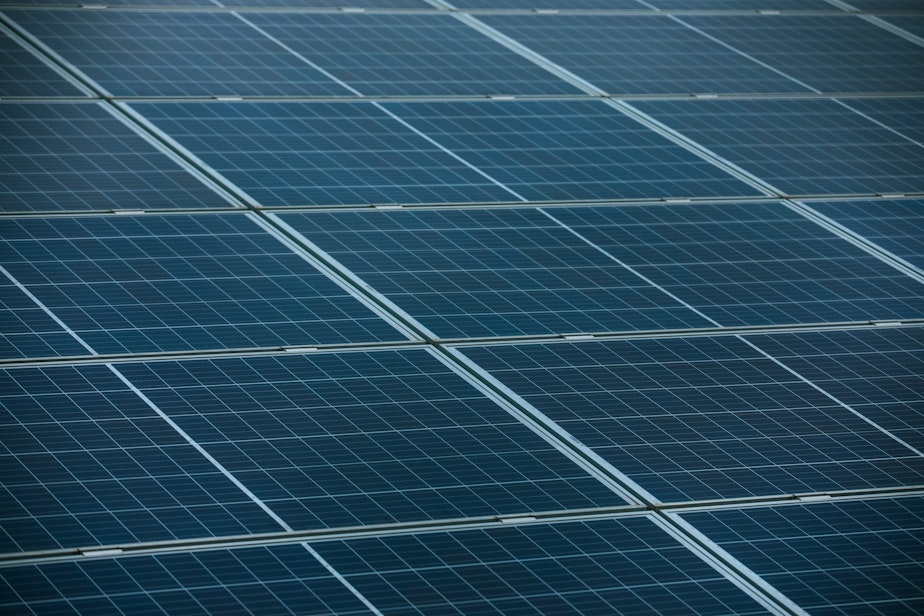A little sunlight goes a long way for this family support center in Olympia

When the Family Support Center of South Sound opened its Olympia facility in 2023, organizers knew that placing solar panels on its roof would be part of the plan. The panels could cut utility costs for the organization that serves survivors of domestic violence — an operation where every penny counts.
“Nobody really gets in business so that they can pay their utility bill,” said Leslie Myers, product manager of Puget Sound Energy’s voluntary renewable programs.
RELATED: Not in my valley. Some San Juan Islanders say no to solar power
One such PSE program provided the family support center with a grant that, along with federal incentives, covered the $145,000 price tag to install the panels. They are now wired up and ready to go. A ribbon cutting is slated for the first week of May.
The center’s facility in Olympia is a 62-unit apartment building, dedicated to serving families with children, and survivors of domestic violence, coming straight from homelessness. Officials expect to house 209 people annually at the site. The solar array on the roof is estimated to save the operation about $365,000 over the next 40 years. That money can now go to other needs, like the people coming through their doors.
“By ensuring that we're reducing costs … we're able to invest in mental health services, case management support, and really, all of the resources that families need to stabilize their housing after being homeless for a period of time,” said Trish Gregory, executive director of the Family Support Center of South Sound.
Sponsored
The panels should alleviate utility costs for at least a couple decades, the estimated time they will work at full capacity, but even after that, they will still be serving the family center.
“Solar has a 20- to 25-year lifespan, at maximum efficiency,” Myers said. “So even after 20 or 25 years, those panels are still going to generate energy, it just might not be as efficient. It might not make as much in year 30, or 35, but they have the potential to last a really long time.”
Elsewhere in Olympia, at the central offices of the Family Support Center, there are no rooftop solar panels, and not because it hadn’t occurred to anybody.
“The biggest issue for us here … is we also have to replace roofs before we'd be able to do that,” Gregory said. ”But it's in our long-term plan.”
RELATED: Washington will need more clean energy from other states by 2050
Sponsored
This solar array in Olympia is the second of 10 projects that PSE’s grant program funded in 2023 that are now complete. The utility company has operated its solar panel grant program for the past seven years, in 10 counties across Washington state. It’s part of PSE’s goal to be carbon-free by 2045.
Each year, competition for the grants heats up, Myers said. In 2023, PSE handed out $780,000 in grants for these projects. The aim is to maximize the impact of renewable energy within racially and economically disadvantaged communities that could benefit from solar panels the most. That means, sometimes, there’ll be years with fewer grant winners.
“We want to make sure that the projects have the most impact for those organizations, too,” Myers said. “So, it's not always about the number of projects. It's about the overall impact and then geographic diversity.”
Such projects have an added benefit for PSE, as the utility company looks toward the future of renewable energy in Washington state.
Solar panels are not appropriate for every roof, Myers noted, especially considering the mature tree canopy throughout the Puget Sound region.
Sponsored
Myers said utilities may not always operate the way they currently do, with centralized plants exclusively transmitting electricity over long distances. Instead, solar panels, and other forms of decentralized renewable energy, developed at the neighborhood level, could play a large role in how people get their energy needs met.
April 29, 2024: This article has been updated to provide Leslie Myers' full title at Puget Sound Energy, and to note that PSE's grant program funded 10 projects in 2023 that are now complete.




